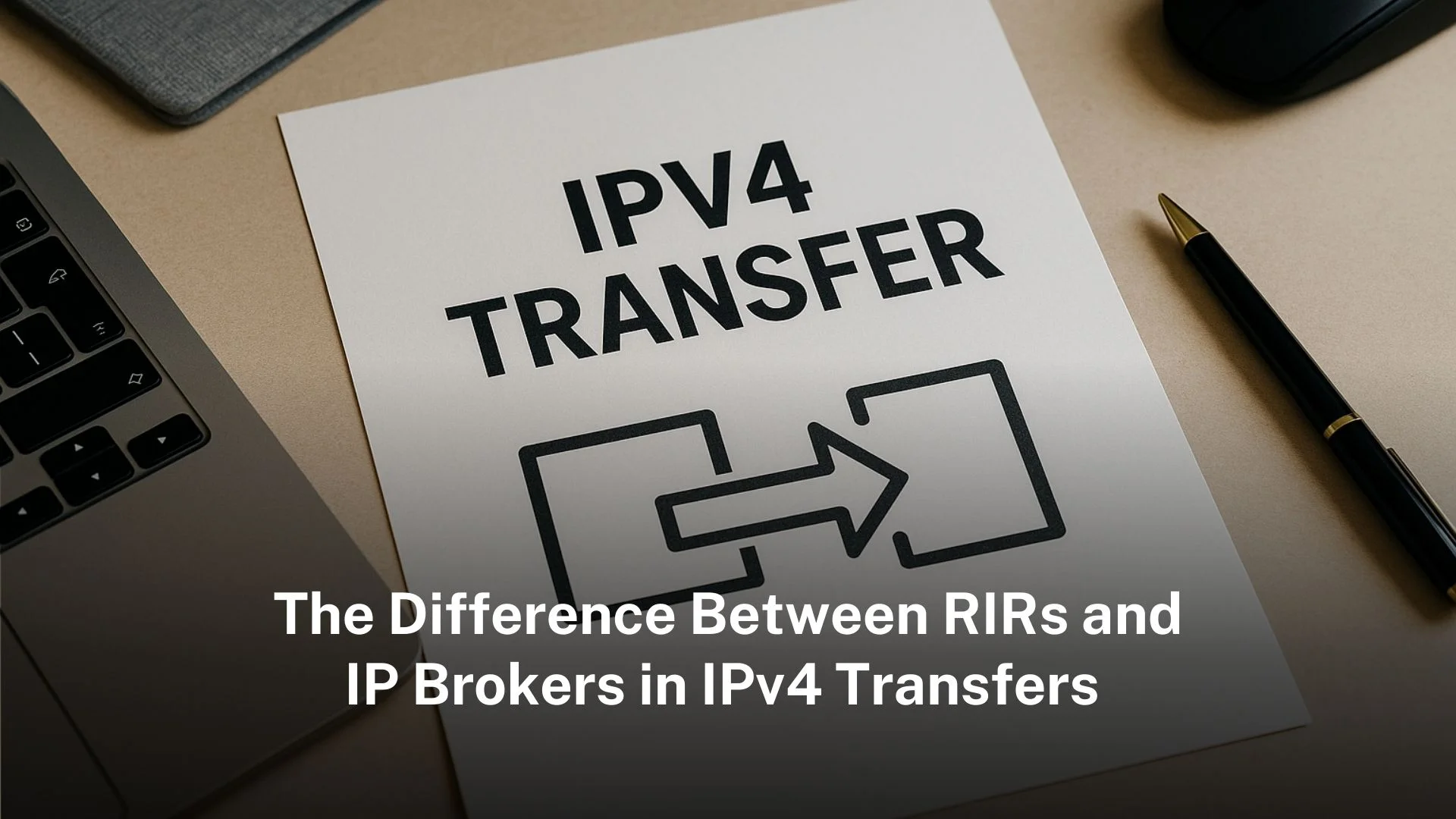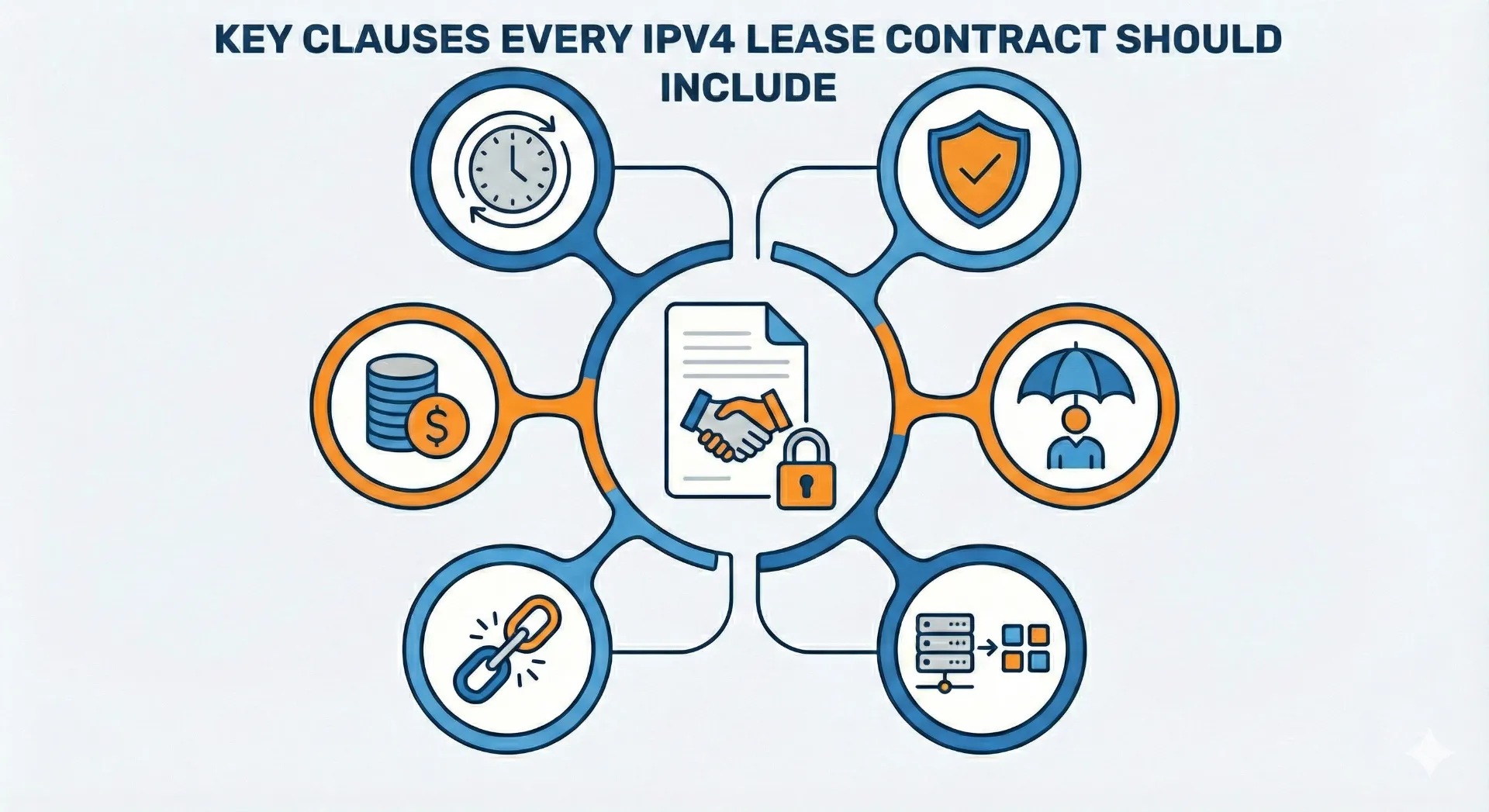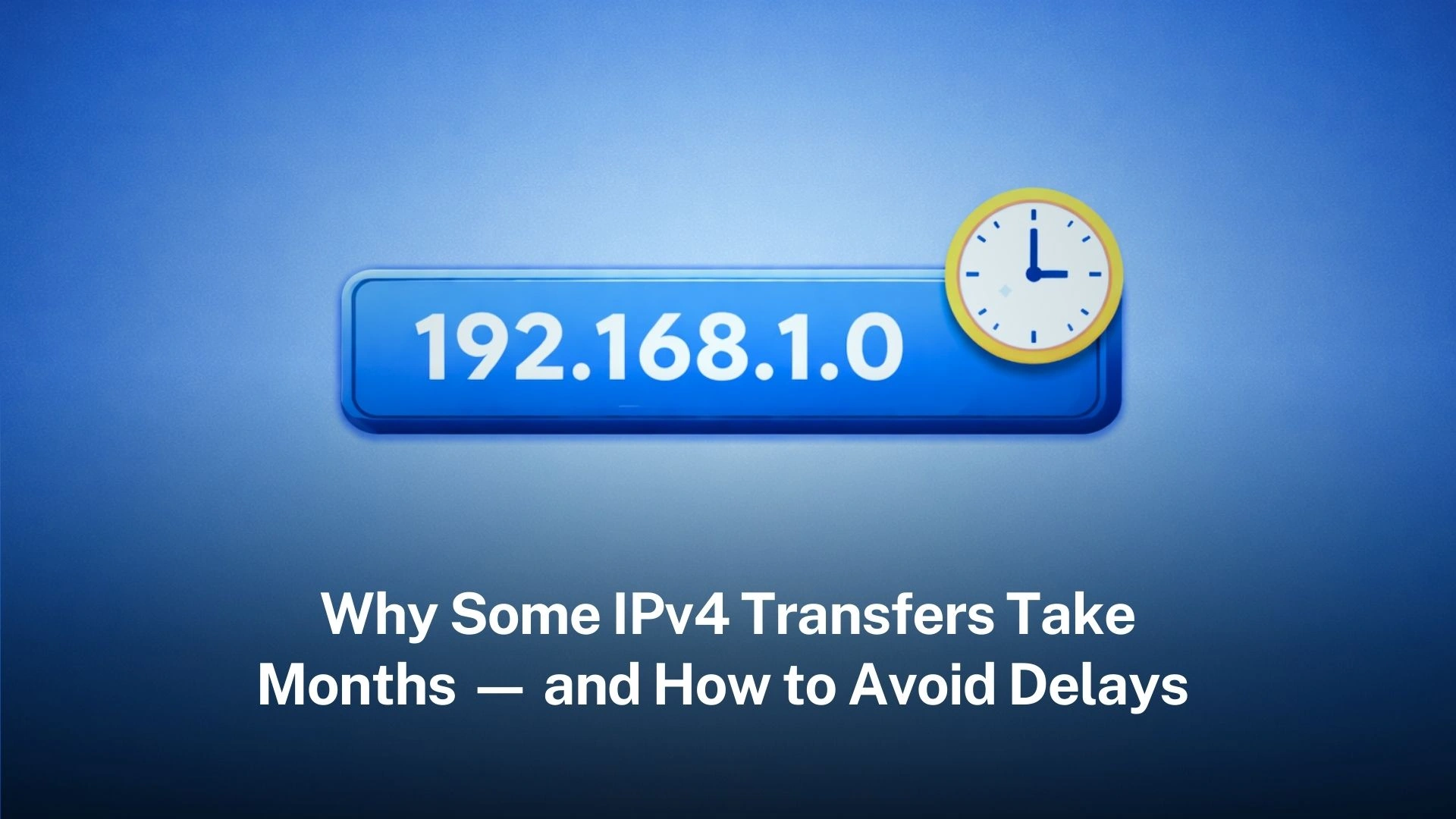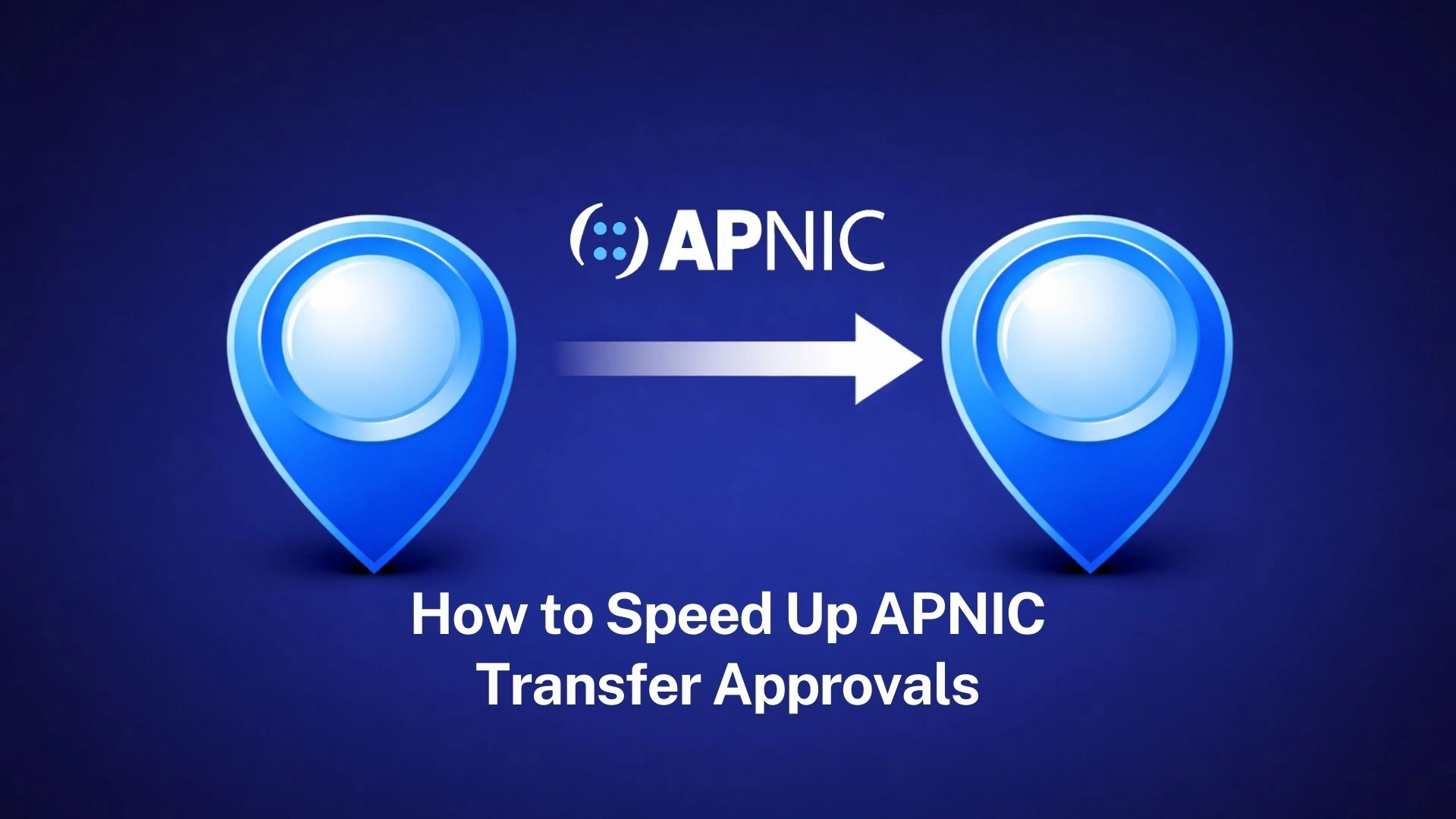The Difference Between RIRs and IP Brokers in IPv4 Transfers

Table of Contents
Toggle• RIRs regulate IPv4 transfers under strict regional policies; brokers mediate and streamline transactions.
• IP leasing services like i.lease offer flexible, rapid access without full ownership transfers.
Introduction
The looming exhaustion of IPv4 addresses has turned these resources into highly traded assets. Two main pathways for organisations to acquire IPv4 space are via Regional Internet Registries (RIRs) or third-party IP brokers. An emerging alternative, i.lease, offers leasing rather than full ownership transfer, reshaping how businesses obtain IP space. This article examines how RIRs and IP brokers differ, highlights the advantages of leasing, and explores how i.lease fits into this evolving landscape.
Regional internet registries govern ownership transfers
Regional Internet Registries (RIRs) are the official authorities managing IPv4 address space within defined global regions. Organisations must comply with each RIR’s policies to initiate transfers. These policies include validating ownership, demonstrating justification for additional addresses, and meeting specific regional restrictions and fees.
Each RIR has its own nuances. Such as whilst AFRINIC prevents transfers to intra-RIR only, APNIC, ARIN, RIPE, and LACNIC all facilitate inter-RIR transfers under reciprocal, needs-based policies. The registry affirms the fact the seller is the legitimate owner of the IP addresses and makes sure that all applicable regulations are met before RIR-led transfers can take position. Each transfer involves documentation, justification of need, and processing fees, making the process thorough but sometimes slow.
Direct transactions: pros and cons
Some organisations choose to bypass brokers altogether and negotiate IP transfers directly. This avoids brokerage fees and provides full control over negotiation—but requires in-house expertise, time, and familiarity with complex RIR requirements.
An increasingly precious resource
IPv4 addresses applied to have been widely available, but as the Internet’s global infrastructure while growing promptly in the early 2000s, that number dropped. In 2011, when IPv4 addresses begun to feel more like things than freely available resources, the Internet Assigned Numbers Authority (IANA) presented over the final of its IPv4 blocks to Regional Internet Registries (RIRs). The shift started an IPv4 transfer market during which brokers and leasing platforms evolved into vital players in regulating supply and gratifying demand.
Regional Internet Registries: the guardians of allocation
The official body parts in the position of transferring and maintaining IPv4 address space within established geographic areas are regional internet registries. When it comes to transferring IPv4 address blocks, the five her primary source RIRs—APNIC (Asia Pacific), LACNIC (Latin America and the Caribbean), RIPE NCC (Europe, Middle East, Central Asia), AFRINIC (Africa), and ARIN (North America)—each enforce their own policies and procedures. When both parties are under the same RIR, as arises when two European companies transfer an address block within RIPE NCC, this is designated as an intra-RIR transfer.
On the flip side, inter-RIR transfers encompasses cross-registry transfers, such as those from ARIN to RIPE NCC, and demand that both RIRs support individuals and adhere to compatible policies. With solely the receiving RIR’s acceptance, intra-RIR transfers typically happen simpler and quicker. Inter-RIR transfers have more complicated and time-consuming since both source and destination registries have to perform verification, enforce documentation requirements, and guarantee that they adhere to local rules and regulations.Within ARIN, for instance, transfers require an Online account, proper organisational identifiers, signed agreements, processing fees and completion within specific windows of time.
Though thorough and secure, RIR transfers demand administrative effort, policy compliance, and in some cases justification of need. That level of complexity, fuelled by regional nuance and documentation, stimulates demand for intermediaries who can navigate the system more efficiently.
IP brokers: intermediaries simplifying complexity
IP brokers become go-betweens for buyers and sellers in the secondary IPv4 market. They raise the process collectively by directing transaction flow, connecting with RIRs, managing documentation, validating ownership, and negotiating terms. These mid-men offer expertise in navigating diverse regional policies, reducing the burden on organisations unfamiliar with RIR intricacies or those seeking to expedite the process.
“An IPv4 broker acts as an intermediary between buyers and sellers, ensuring a compliant, successful transaction every time.”
— Vincentas Grinius, IPXO Co-Founder
This kind of service accelerates transactions, mitigates regulatory risk and delivers peace of mind. nevertheless through the brokered route may on occasion limitation direct negotiation with the other party and comes at a cost, which typically ranges coming from 5 to 15% of the transaction. When deciding on this course, entities need to consider the trade-off between speed and autonomy.
Leasing IPv4: a flexible alternative
Leasing IPv4 address space has emerged as a nimble and cost-effective substitute to both outright transfer and lengthy RIR approval. In leasing, organisations gain temporary usage rights to an IPv4 block, without permanent ownership or registration. This model suits those needing flexibility, rapid deployment, or temporary burst capacity.
ARIN’s Chief Experience Officer John Sweeting notes that leasing can sidestep market delays or lengthy waiting lists. However, he cautions that leasing does not grant permanent registration or autonomy, and addresses must be returned once lease terms expire; misuse of leasing to justify new allocations under ARIN policy could trigger policy enforcement.
LARUS, a provider of IPv4 leasing services, advertises delivery within 48 hours of contract, payment and authorisation letter. Their approach ensures agility for networks needing fast allocation without RIR membership or fees.
A shortage that created a market
The estimated value during the Internet wasn’t expected by the people who developed it when it was first conceived. With its 32-bit address space, the IPv4 protocol delivered in 4.3 billion distinguished addresses. This seemed sufficient at the time.Yet the boom of mobile devices, broadband, and cloud computing quickly consumed this supply. By 2011, the Internet Assigned Numbers Authority (IANA) had allocated its final blocks to the five Regional Internet Registries. Scarcity set in, and what had once been free infrastructure became a tradable asset.
In response, organisations began looking for ways to secure IPv4 space for their networks. This gave rise to two distinct routes: going directly through RIRs under strict regional policies, or using brokers to simplify and speed up the process. More recently, leasing models such as i.lease have introduced a third option, where companies can access addresses on demand without buying them outright.
The authority of Regional Internet Registries
North America is protected by ARIN, Europe and parts of Central Asia due to RIPE NCC, Asia Pacific with APNIC, Latin America and the Caribbean with LACNIC, and Africa due to AFRINIC. The main aim of all registry services, spite of their variances in strategy, is to verify that IPv4 allocations are true to themselves effectively registered, and in accordance with the local laws (arin.net). An organization must go through an intra-RIR method if it seeks to transfer IPv4 addresses within just one region.This typically involves verifying the current holder’s rights, approving the transfer request, and sometimes justifying the need for additional space.
If the transfer crosses borders—for example from ARIN to RIPE—then both RIRs must approve the transaction. These inter-RIR transfers are slower and involve more documentation (prefixbroker.com).
The advantage of working directly with an RIR is that the process is secure and results in definitive ownership recorded in the registry’s database. The drawback is time. Processing can take weeks or months, and for organisations needing addresses quickly, the bureaucracy may feel like an obstacle.
Brokers as market facilitators
This is where brokers have carved out a role. By acting as go-betweens, IPv4 brokers help buyers and sellers navigate the complex global landscape of registry policies. On behalf of their clients, brokers manage negotiations, prepare paperwork, and coordinate with RIRs — reducing the risk of errors or rejected applications.
“The job of a broker is to ensure a successful transaction every time, by validating ownership and navigating complex policy requirements.”
— ipxo.com
Beyond facilitating transfers, brokers typically:
- Validate IP ownership and ensure legitimate registry records before submission.
- Prepare and manage documentation required by RIRs across multiple jurisdictions.
- Negotiate deal terms between buyer and seller, maintaining neutrality and compliance.
- Liaise directly with RIRs, ensuring each step aligns with regional transfer policies.
- Pre-screen IP blocks to check for blacklisting or previous abuse associations.
- Coordinate escrow and payment processes to safeguard both parties.
- Charge brokerage fees, usually between 5–15% of the deal value, depending on block size and complexity.
Leasing reshapes the landscape
While RIRs and brokers focus on ownership transfers, IPv4 leasing takes a different route — offering access without the need to buy. Businesses can rent address space for a defined term, gaining flexibility and speed while avoiding long approval cycles.
i.lease stands out as a full-service platform that simplifies the entire leasing process:
- Contracts signed and approved within days
- Pre-vetted, clean IPs to avoid blacklist or abuse issues
- Built-in abuse management and multilingual support
- No RIR membership required
This model suits companies needing fast or temporary expansion — such as start-ups, hosting providers, or seasonal content networks. As IPv4 prices continue rising, leasing offers a cost-effective bridge until IPv6 adoption becomes widespread.
Expert perspectives
Ioana Livadariu of APNIC has noted that the IPv4 transfer market is “carefully monitored” but still heavily influenced by intermediaries who manage the practicalities of deal-making (blog.apnic.net). Researchers such as Vasileios Giotsas have highlighted the problem of address reputation, finding that a significant portion of transferred blocks were already blocklisted, underlining the importance of using trusted brokers or platforms to vet addresses (ipxo.com).
These insights reinforce the idea that while RIRs provide legitimacy, the marketplace requires additional layers of assurance and flexibility. Leasing services, including i.lease, are effectively responding to this gap by combining speed with quality control.
The choice businesses face
Every organisation must decide which approach suits its strategy. If permanence is essential, RIR-led transfers remain the gold standard. They ensure ownership is fully recognised and cannot be disputed. If speed and convenience matter more, brokers provide professional support that shortens the timeline and reduces administrative headaches. For those prioritising flexibility and cost control, leasing via platforms like i.lease offers an attractive third way.
None of these paths is universally superior. They coexist because business needs vary. A multinational telecom operator planning for decades of service continuity will likely prefer secure ownership. A digital media firm launching a short-term platform may instead lease what it needs for six months. The key lies in aligning the method with operational goals.
Looking ahead
The long-term solution to IPv4 exhaustion is of course IPv6. Nevertheless, adoption has been uneven, and IPv4 remains extensively utilized in many networks. The necessity for IPv4 leases and transfers will not end until IPv6 is implemented roughly by everyone. knowing the presence of services like i.lease, leasing could possibly continue to be valuable in a dual-stack the natural world where IPv4 capacity will continue to be needed in combination with IPv6.
Trusted IPv4 Leasing for Business Growth
Get enterprise-grade IPv4 space quickly, with seamless deployment and end-to-end management.
FAQs
An intra-RIR transfer occurs within a single registry’s region, requiring approval only from that registry. An inter-RIR transfer moves addresses between two registries, requiring both to approve.
Brokers simplify complex processes, reduce administrative burden, and help avoid mistakes. They also provide market knowledge and reputational screening of IP blocks.
i.lease does not arrange ownership transfers. Instead, it offers temporary leasing of IPv4 addresses with fast provisioning and clean reputational checks.
For short-term needs, leasing is almost always more economical. Buying provides permanent ownership, but costs have risen significantly in recent years.
Eventually IPv6 should reduce demand for IPv4, but the transition is slow. Until adoption becomes universal, IPv4 transfers and leasing will remain essential.
Related Blogs
As IPv4 scarcity deepens, carefully drafted lease contracts have become essential tools for managing risk, compliance and long-term network stability.Well-defined Read more
Key points:IPv4 transfer delays are primarily driven by registry policy complexity and incomplete or inconsistent documentation.Early preparation, pre-approval and professional Read more
Standfirst APNIC IPv4 transfers can stall on documentation, timing, and registry hygiene. Preparation, pre-approval, and clean records materially accelerate outcomes. Read more
As IPv4 scarcity deepens, carefully drafted lease contracts have become essential tools for managing risk, compliance and long-term network stability.Well-defined Read more
Key points:IPv4 transfer delays are primarily driven by registry policy complexity and incomplete or inconsistent documentation.Early preparation, pre-approval and professional Read more
Standfirst APNIC IPv4 transfers can stall on documentation, timing, and registry hygiene. Preparation, pre-approval, and clean records materially accelerate outcomes. Read more



